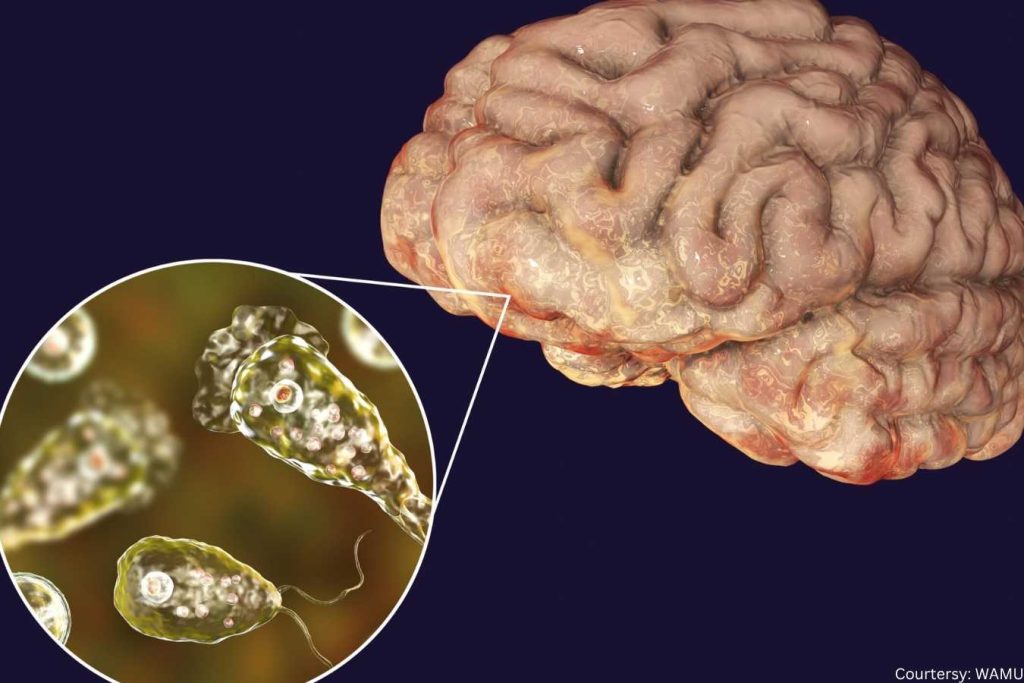KARACHI – A 17-year-old student from Karachi has become the fourth confirmed fatality from Naegleria fowleri—commonly known as the brain-eating amoeba—in Sindh this year, health officials confirmed.
According to the Sindh Health Department, the teenager was a resident of North Karachi. He developed high-grade fever, headache, and vomiting on June 25 and was admitted to Aga Khan University Hospital the following day. Lab tests confirmed the presence of Naegleria fowleri on June 27. Despite receiving intensive care, the young patient succumbed to the infection shortly after diagnosis.
Health Officials Trace Potential Exposure
Officials revealed that the victim had no recent exposure to swimming pools or freshwater recreational sites. His only possible exposure was through routine religious ablution (wudu), suggesting that unchlorinated or improperly treated water may have been the source.
Background: A Rare but Fatal Threat
Naegleria fowleri is a microscopic organism found in warm freshwater sources such as tanks, taps, and poorly maintained water systems. It enters the human body through the nasal passages and travels to the brain, causing Primary Amoebic Meningoencephalitis (PAM)—a condition that is almost always fatal.
Since its first detection in Karachi in 2008, the province has recorded more than 100 cases, with only a handful of survivors. This latest death marks the fourth Naegleria-related fatality in Sindh in 2025.
Preventive Measures Advised
The Sindh Health Department has reiterated the following precautions to avoid infection:
- Use chlorinated or boiled water for nasal cleansing and ablution
- Clean and disinfect overhead and underground water tanks regularly
- Prevent water from entering the nose during religious and domestic washing
Officials have also urged the municipal authorities to ensure strict monitoring of water chlorination across the city, especially during the summer months when the risk of infection is highest.
Public Response and Concern
With multiple fatalities reported this year, healthcare professionals are calling for greater public awareness and timely action by water management bodies to curb further spread of this lethal amoeba.
This story has been reported by PakTribune. All rights reserved.



